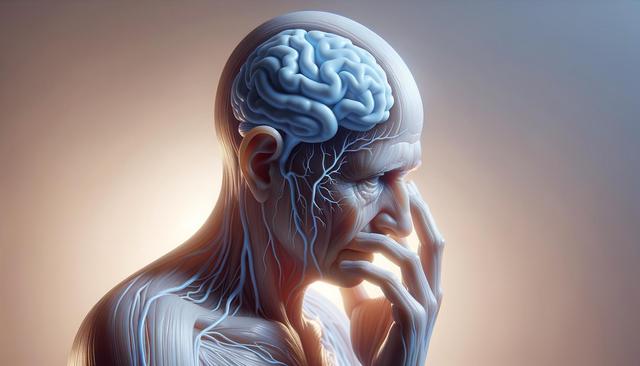Early Signs of Dementia: Key Indicators and Tests

Understanding Dementia and Its Early Impact
Dementia is a general term used to describe a decline in cognitive function that interferes with daily life. While it is most commonly associated with aging, it is not a normal part of the aging process. The condition encompasses various types, including Alzheimer’s disease, vascular dementia, and Lewy body dementia. Recognizing the early signs can help in managing symptoms more effectively and planning appropriate care. Early identification is particularly important for men, who may show different symptoms than women. These early indicators often begin subtly and may be mistaken for normal aging or stress-related memory lapses.
One of the primary challenges in detecting dementia early is that symptoms tend to develop gradually. In men, some cognitive changes might initially be overlooked, especially if they continue to fulfill their work and family responsibilities. However, consistent patterns such as forgetfulness, trouble finding words, and difficulty concentrating may point to underlying cognitive decline. Understanding these early warning signs can make a significant difference in seeking timely professional evaluation and support.
Common Early Signs of Dementia in Men
Although dementia symptoms can vary by individual, several common early signs tend to appear in men. These may differ slightly from those seen in women, making gender-specific awareness essential. Some of the early symptoms that are more frequently observed in men include:
- Increased aggression or irritability
- Reduced motivation or apathy
- Difficulty with planning and organization
- Impaired judgment and decision-making
- Withdrawal from social or professional activities
These changes may be subtle at first. For example, a man who was once highly organized might begin to miss appointments or forget important tasks. A normally calm individual may become easily frustrated or argumentative. These behavioral shifts, especially when combined with memory issues, should prompt further assessment. Family members and close friends are often the first to notice these changes, and their observations can be critical in encouraging the affected person to seek help.
Cognitive and Behavioral Changes to Monitor
While memory loss is a well-known sign of dementia, it is just one part of a broader pattern of cognitive and behavioral changes. In men, these changes can manifest in ways that might not be immediately linked to dementia. For instance, increased risk-taking or poor financial decisions could be tied to impaired judgment. Trouble completing familiar tasks, such as cooking a known recipe or following a routine route, may also emerge.
Other cognitive shifts to observe include:
- Difficulty following conversations or finding the right words
- Loss of spatial awareness, leading to getting lost in familiar places
- Reduced ability to focus or solve problems
- Confusion about time or place
Behaviorally, men may demonstrate denial or defensiveness when confronted about these issues. This can delay diagnosis and intervention. It’s important to approach these concerns with empathy and patience, encouraging open dialogue and professional input.
When and How to Seek Medical Evaluation
Recognizing the need for a medical evaluation is a crucial step in addressing potential dementia. If early signs persist or interfere with daily functioning, it is advisable to consult a healthcare professional. A general practitioner may begin with a basic screening and then refer to a neurologist or geriatric specialist for further assessment.
Medical evaluations typically include:
- Memory and cognitive tests
- Neurological exams
- Imaging tests such as MRI or CT scans
- Blood tests to rule out other conditions
Family history and lifestyle factors are also taken into account. Men may be less likely to seek help on their own, so support from loved ones plays a key role in initiating the diagnostic process. Encouraging men to attend regular health checkups and discussing cognitive health during these visits can lead to earlier detection and better outcomes.
Maintaining Brain Health and Planning Ahead
Although there is no cure for most forms of dementia, early diagnosis allows individuals and families to plan for the future and access supportive resources. Lifestyle changes, cognitive therapy, and certain medications can help slow the progression and improve quality of life. Men can take proactive steps to maintain brain health by engaging in regular physical activity, eating a balanced diet, staying socially active, and challenging their minds with hobbies or learning new skills.
Long-term planning is also an essential aspect of managing a dementia diagnosis. This may include:
- Establishing legal and financial directives
- Exploring care options and support services
- Joining support groups for individuals and caregivers
- Creating routines that support independence and safety
Encouraging open communication among family members about preferences and responsibilities can ease the emotional and logistical challenges that may arise later. Being informed and prepared makes a meaningful difference in managing dementia’s effects over time.
Conclusion: Early Awareness Makes a Difference
Understanding the early signs of dementia in men is critical for timely intervention and improved management of the condition. Subtle changes in behavior, memory, and decision-making should not be dismissed as mere aging. By staying informed, encouraging regular checkups, and seeking medical guidance when concerns arise, individuals and their families can take important steps toward maintaining cognitive health and planning for the future. Early action, supported by awareness and compassion, can help create a path toward a more manageable and supported journey through dementia.
